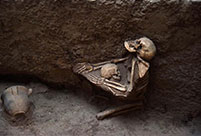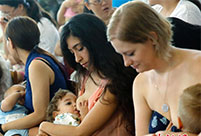

 |
| Illustration: Liu Rui/GT |
Last weekend, I attended the wedding of my friend Lily Fan and her significant other Anthony Arnold. Lily, originally from Hong Kong, previously a political campaign manager and now a Broadway show producer, and Anthony is a US-born architect. Before the bride and the groom arrived at the ceremony, the audience was treated to a puppet show that revealed how Arnold pursued Lily with great persistence and patience.
The wedding was hosted by Doris Ling-Cohan, the first Asian female judge on the Appellate Panel of the New York State Supreme Court and the Chinatown-born daughter of a poor immigrant family from Guangdong in southern China. Ling-Cohan's husband, Marc Cohan, a New York lawyer she met in college, was also there. As was my British-born husband.
There were a number of other interracial couples at the event that I knew, as well as many I didn't. No one gave any of us a second glance. This is New York in 2015. Cross-racial relationships are now a common thread in the city's tapestry.
But it was not always like this. Judge Ling-Cohan told me when she started dating her future husband, her father was intensely opposed to the relationship because Marc is not Chinese. For a long time, the couple had to cope with the not-so-friendly stares from almost everybody on the street whenever they came to Chinatown.
They got married in 1974, a time that seems so far away today.
For people who don't know how awkward an interracial relationship was in the 1970s, there is Everything I Never Told You, the wildly acclaimed debut novel of Chinese American writer Celeste Ng.
The book, about the struggles of a family with a Chinese American father, a Caucasian mother, and their three children, was named the best book of the year by the likes of Amazon, Huffington Post and Buzzfeed when it was published by Penguin last summer. A Chinese edition hit the shelves last month in China and has already attracted a lot of attention.
A major reason the book got critical acclaim is because there are few stories about cross-cultural families involving Asians in American contemporary literature.
So, although American readers are not total strangers when it comes to Asian stories thanks to established writers like Amy Tan and Ha Jin, they still find the story in Everything I Never Told You unique.
In a review of the book for The New York Times, Korean American writer Alexander Chee said, "If we know this story, we haven't seen it yet in American fiction, not until now."
Ng, 34, who was born in the US to an immigrant family from Hong Kong, is also in an interracial marriage herself, as are many of her friends. Ng was surprised by her findings when she did research for the book: not only was interracial marriage illegal in many states until 1967, but also a majority of Americans didn't support such relationships until 1997, when she was in high school.
But now things are so different. According to a recent Pew Research Center's analysis of the US Census, 12 percent of the newlyweds in 2013 married someone of a different race, the highest ever. And 6.3 percent of all marriages are interracial compared to less than 1 percent in 1970. Separately, the Census also shows the population of multiracial Americans, the products of such marriages, was 9 million in 2010, or 2.9 percent of the total US population. But for the under 18s, the figure is 5.6 percent.
The positive effects of this rising trend were observed by Ng at home. She told me she is confident that when her 4-year-old son grows up and reads the book, "he would be like, thank God, it is not my family." Being multiracial in today's world is considered more like an asset than liability. A cross-cultural family is no longer known for being ill-fitting to either culture, but for its understanding of both cultures.
Living everyday life in the US and seeing racial conflicts built on each other can easily make us pessimistic about race relations and forget how much progress the country has made on this front. But when more people who, despite all their differences, can live and love under the same roof without being stared at like aliens, it can only mean racial relations in the country have been getting better not worse.
It can only mean more people in this country agree with Ben Carson. When the only black candidate in the crowded Republican presidential race explained why he doesn't talk about race more often in a television debate last week, he said, "Because I'm a neurosurgeon…When I take someone into the operating room, I'm actually operating on the thing that makes them who they are. The skin doesn't make them who they are."
 True love in typhoon
True love in typhoon Striking moments when strategic missiles are launched
Striking moments when strategic missiles are launched Construction on Asia’s biggest suspension bridge started
Construction on Asia’s biggest suspension bridge started Impressive firing of China’s rocket artillery system
Impressive firing of China’s rocket artillery system Shocking scenes found in 4000-year-old earthquake relic
Shocking scenes found in 4000-year-old earthquake relic Female soldiers add color to military parades
Female soldiers add color to military parades Mums stage breastfeeding flash mob
Mums stage breastfeeding flash mob Awesome Chinese missiles
Awesome Chinese missiles Official shot having sex with two college girls
Official shot having sex with two college girls Moscow “spider-man” climbs Chinese skyscraper
Moscow “spider-man” climbs Chinese skyscraper Keeping cool in ancient China
Keeping cool in ancient China Tianjin explosion: Latest updates
Tianjin explosion: Latest updates Hyping threat of yuan devaluation absurd
Hyping threat of yuan devaluation absurd Warehouse explodes near Tianjin’s port, 44 killed, over 400 injured
Warehouse explodes near Tianjin’s port, 44 killed, over 400 injuredDay|Week